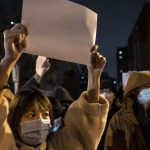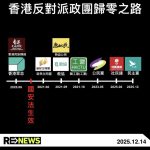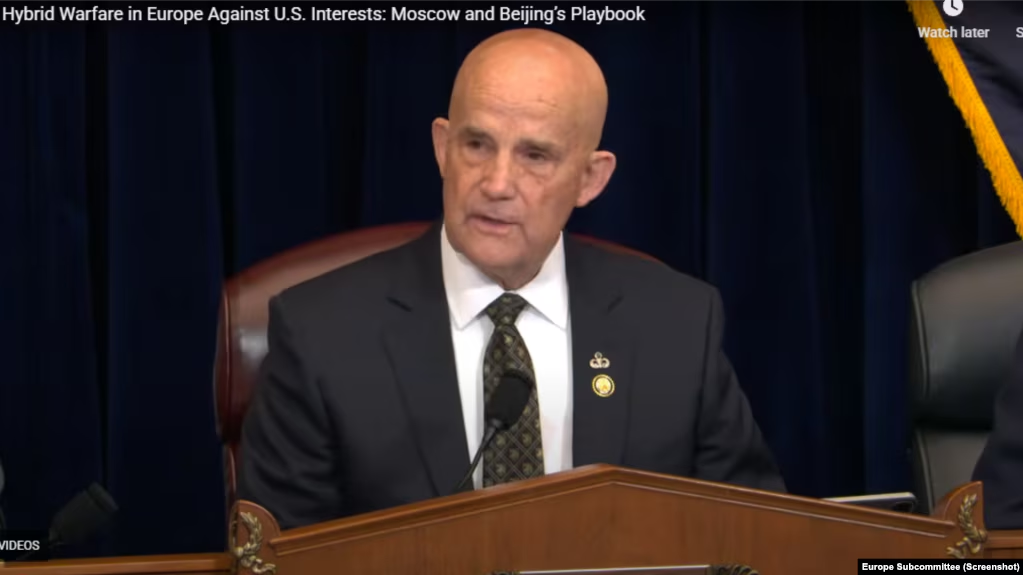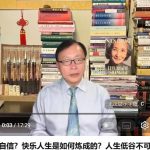January 18, 2018 3:15AM EST

Nobel Peace Prize winner Liu Xiaobo, who died in Chinese custody in July 2017. © 2013 Reuters
(New York, January 18, 2018) –The Chinese government under the leadership of President Xi Jinping expanded its sustained offensive against human rights both at home and abroad in 2017, Human Rights Watch said today in its World Report 2018. The death of the Nobel Peace Prize laureate Liu Xiaobo in a hospital under heavy guard in July epitomized the authorities’ deep contempt for people’s rights. China used its increasing global influence to threaten the protection of rights internationally.
Liu Xiaobo died from cancer in a Shenyang hospital, surrounded by state security, after serving nearly 9 years of his 11-year prison sentence for “inciting subversion.” During his hospitalization, authorities isolated Liu and his wife, Liu Xia, from family and supporters, and denied Liu’s request to seek treatment outside the country. Since Liu’s death, authorities have forcibly disappeared Liu Xia.
“Chinese authorities are leaving no stone unturned in their cruel campaign against peaceful human rights activism,” said Sophie Richardson, China director at Human Rights Watch. “The near future for human rights in China appears grim as President Xi enters his second five-year term.”
In the 643-page World Report, its 28th edition, Human Rights Watch reviews human rights practices in more than 90 countries. In his introductory essay, Executive Director Kenneth Roth writes that political leaders willing to stand up for human rights principles showed that it is possible to limit authoritarian populist agendas. When combined with mobilized publics and effective multilateral actors, these leaders demonstrated that the rise of anti-rights governments is not inevitable.
Beijing subjected more human rights defenders – including foreign nationals – to show trials in 2017. Police tortured detainees to obtain confessions, denied them access to lawyers of their choice, and held them incommunicado for months. Lawyer Wang Quanzhang and activist Wu Gan, who were rounded up in the nationwide crackdown that began in July 2015, remained in police custody. Taiwanese democracy activist Lee Ming-che was sentenced to five years in prison, and lawyer Jiang Tianyong received two years, both for “subverting state power.”
The Chinese government also intensified its assault on the freedom of expression, Human Rights Watch said. Authorities banned unauthorized circumvention tools that allow internet users to bypass government censorship. A Guangdong man was sentenced to nine months in prison for selling virtual private networks, or VPNs. The tech giant Apple said it had removed 674 VPNs from its App store in China during 2017, citing a need to comply with government regulations. Authorities also pressured foreign academic publishers – including Cambridge University Press and Springer Nature – to pull access to articles in China. After an international outcry, Cambridge restored the 300 articles it had withdrawn.
Hong Kong marked the 20th anniversary of its return to Chinese sovereignty. The growing interference of the central Chinese government is increasingly undermining civil liberties in the city. Three student leaders were sentenced to six to eight months in prison for peaceful protest against China’s government during the 2014 Umbrella Movement.
Repression deepened in ethnic minority regions of Xinjiang and Tibet. In Xinjiang, the government increasingly restricted and punished ethnic Uyghurs’ foreign ties by arbitrarily recalling passports and forcing those studying abroad to return. It has also arbitrarily detained thousands in political education facilities and ramped-up surveillance measures. In Tibet, authorities carried out the mass demolition of some parts of monasteries, expelling monks and nuns and forcing them into re-education programs.
China increasingly used its growing global influence to undermine human rights protections abroad, Human Rights Watch said. At the United Nations, China worked consistently to silence criticism of its human rights record and took actions to weaken central UN human rights mechanisms. In June, the European Union failed for the first time to deliver a statement on China under a standing agenda item at the UN Human Rights Council, because Greece, a council member, was unwilling to criticize human rights violations in China, with which it has substantial trade ties.
“As China plays an increasingly assertive role in world affairs, governments need to push back on President Xi’s abuses at home and abroad,” Richardson said. “Defending embattled Chinese human rights defenders and activists is critical.”











